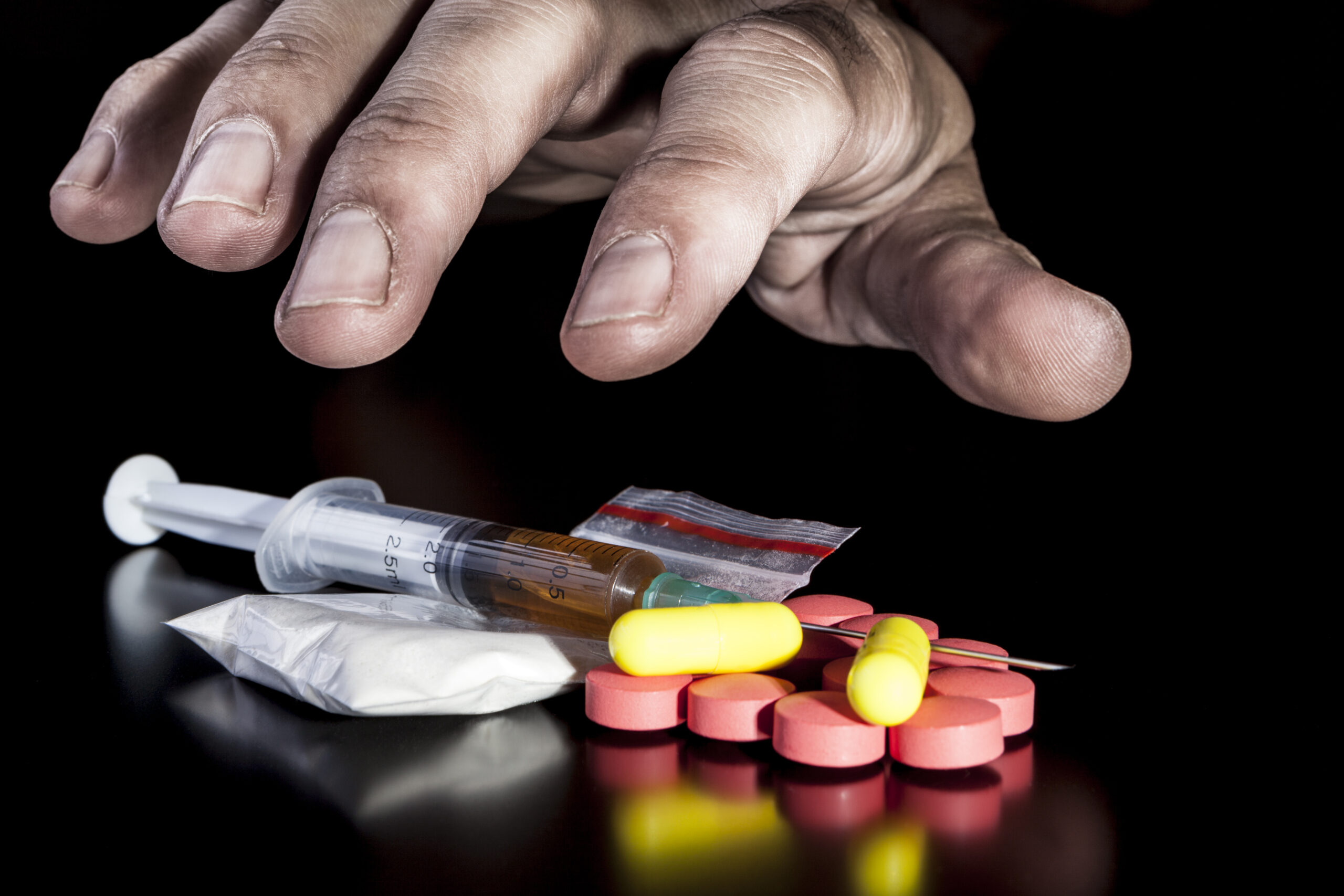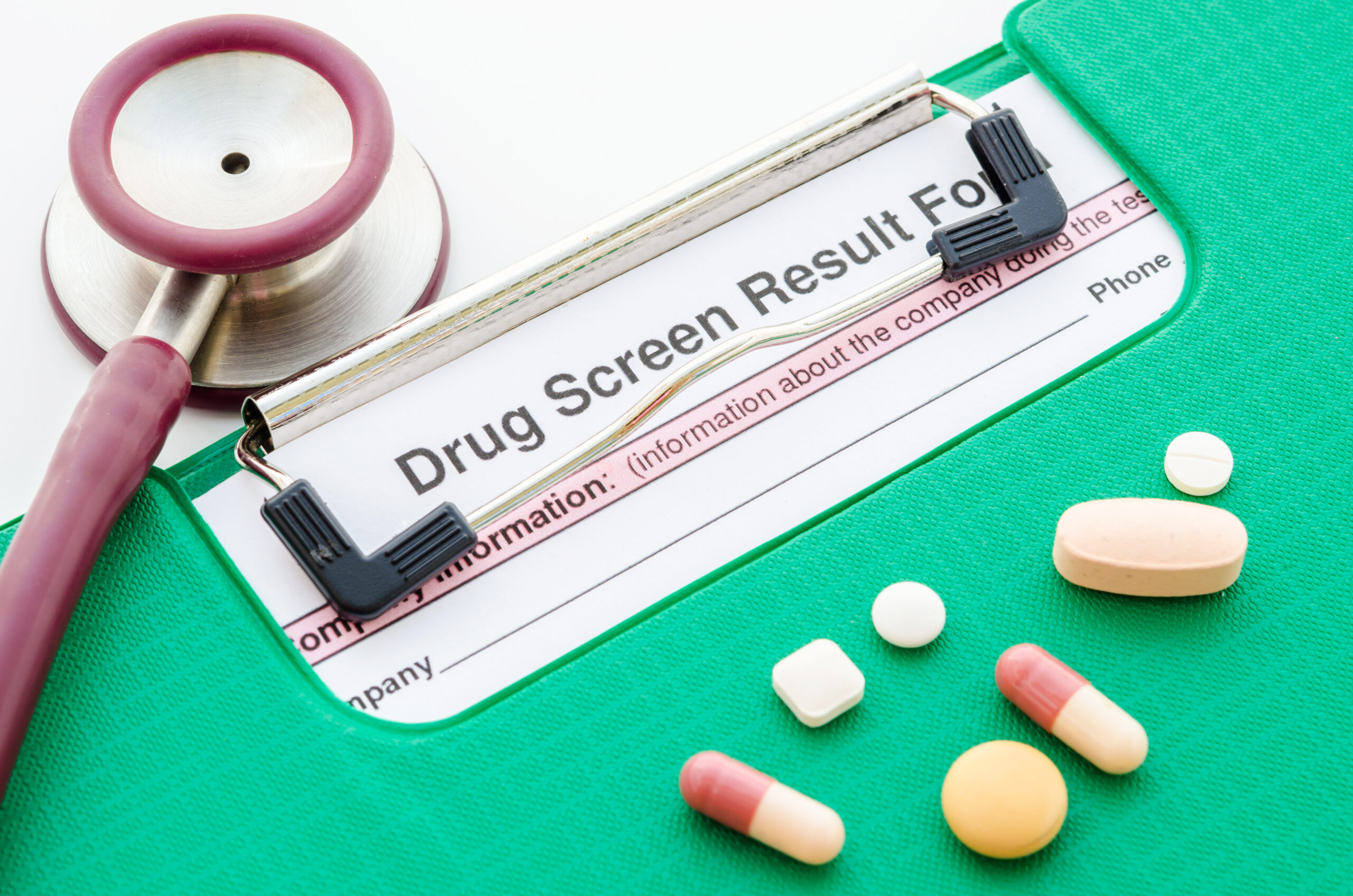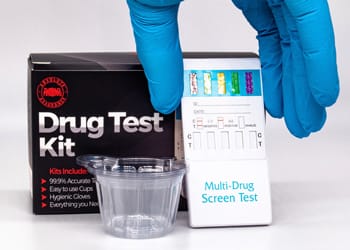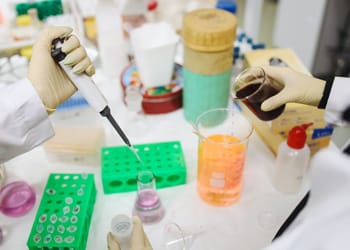Drug Abuse Screening Test
Employers are always looking for a way to keep their employees safe at work. Drug abuse screening tests can be an effective way of preventing drug-related accidents on the job.
However, employers should also consider the pros and cons of workplace drug testing before deciding to require this type of testing among all employees.
For example, workplace drug testing may have limited effectiveness in reducing substance use because other factors like peer pressure or low wages could act as motivators for continued illicit drug use by some workers who would rather risk losing their jobs than stop using drugs entirely.
The drug abuse screening tests that are available to businesses can be a great asset. They allow employers to have peace of mind knowing their employees will not suffer the consequences of addiction at work. A drug testing program also ensures productivity and safety for all in the workplace by allowing an employer to take appropriate action if someone does show signs of drug use or abuse, and educates employees on making educated decisions in regards to drug use among co-workers.
Schedule an appointment. 24 hour on-site service available.
Statistics
According to data from the National Survey on Drug Use and Health, 10.6% of full-time employees and 13.2% of part-time employees aged 18 or older reported using illicit drugs within the past month1. questdiagnostics.com
According to the 2010 National Survey on Drug Use and Health , 66 percent of substance abusers aged 18 and over are employed.
hireright.comData from the SHRM poll shows that organizations that implemented drug testing saw about a 16 percent decrease in employee turnover rates. hireright.com
Absenteeism Substance abusers are also more likely to be absent from work. Hireright.com
According to the Working Partners, National Conference Proceedings Report, substance abusers are 2.5 times more likely to be absent for more than eight days a year than regular workers.
hireright.co
Drug Abuse Screening Test Pros:
• Promotes greater responsibility among workers
• Inspires confidence by staff and employers alike in the safety of employees
• Provides a corporate culture that cares about their employee’s wellbeing
• Protect your company and employees from harm
• Get a competitive edge against other employers
• Encourage staff members to be conscientious about their drug use
• Boost productivity
• Promote a healthier workforce
• Reduce liability risk
• Provides education about the harms of drug testing for workplace dynamics
• Encourages people to be more understanding and not judge others based on an assumption
• Promotes individual responsibility rather than vetting it through employers.
Workplace drug testing can identify people in need of assistance. Drug testing is a scientifically-grounded intervention that can have dramatic results for some employees when they are dealing with addiction and other difficulties. If someone has a problem, workplace drug tests help them get help by circumventing the unreliable system of self-reporting from those who are afraid or unable to be honest for personal reasons.
Substance use disorders are a serious public health issue that affects millions of people. As the National Institute on Drug Abuse reports, more than 20 million Americans have substance abuse disorders, and an estimated 4 to 8 percent of employees at any given time will be abusing drugs or alcohol in the workplace.
A recent report from Quest Diagnostics found that drug testing rates among American employers increased by 36% between 2011 and 2014. The results suggest that many employers believe that screening for illicit substances is important in maintaining a safe work environment and protecting their business interests as well as those of their employees.
While there may be some debate over whether it’s ethical to test for marijuana use when it is legal in certain states, most experts agree that pre-employment drug testing can help identify problem workers before they cause damage to themselves or others; post-accident tests can also help determine if an employee has been using while on the job. In addition, random drug testing.
Substance use disorders are a leading cause of lost work time and productivity, as well as absenteeism in the workplace.
The most effective way to identify employees with substance use problems is through testing. A recent study by Quest Diagnostics found that urine drug test positivity rates increased from 4% in 2014 to 5% in 2015 among U.S. full-time workers ages 18–64—a significant increase when you consider that this is approximately 7 million people who were using drugs either at or away from work during the course of one year!
Workplace drug testing can help identify employees in need of help with their substance use people with addictions are often highly secretive and deceitful, drug testing circumvents the need for honest self-reporting, which is highly unreliable when people have a lot to lose; in this case, potentially, both their livelihood and their reputation.
Summary: Drug testing results help employers make decisions on how best to handle things with their employee, such as sending them to rehabilitation, disciplining them, etc. They help cut down on liability risks for the company from accidents caused by under-the-influence workers.
Drug Abuse Screening Test Cons:
-Some people might feel like they’re being watched too closely and it’s an invasion of their privacy
-Certain drugs and their legality are highly debated and the environment and social structure around them are constantly in flux.
Another sign of changing attitudes: Support in the U.S. for marijuana legalization was at a record high
of 64 percent last fall, according to a Gallup survey.
shrm.org
-Only one in ten employees that have a substance abuse issue will seek help on their own.
Workplace drug testing can identify people in need of assistance. Drug testing is a scientifically-grounded intervention that can have
dramatic results for some employees when they are dealing with addiction and other difficulties. If someone has a problem, workplace
drug tests help them get help by circumventing the unreliable system of self-reporting from those who are afraid or unable to be honest for personal reasons.
But some consider the workplace drug testing process to be flawed. Drug tests can’t tell if a person has an addiction problem or whether they will be able to perform their job safely while under the influence of drugs.
Drug tests have been shown to discriminate against people with mental health problems, and many employers are not aware that this discrimination is illegal.
In the US, workplace drug testing is common. The workers who are tested for drugs may not be aware of the potential consequences if they test positive.
A lot of people with addiction problems have jobs and will need to undergo drug tests at some point in their careers. If they do not know what could happen if they test positive, it can lead to a lot of stress and anxiety that prevents them from getting treatment before it’s too late.
People should understand how these tests work so that they can get appropriate help when necessary instead of being fired or denied welfare benefits because of a false positive result on a drug test.
Summary: Companies should be careful to consider the employee as a whole and implement better policies so that those who need treatment get it instead of the only option being losing their jobs for having an addiction problem.
Taking a unique approach to provide an integrated solution for all aspects of workplace drug testing including training, education, counselling, evaluation and rehabilitation services tailored to individual needs through a holistic multi-disciplinary team approach within an
environment which fosters recovery support and resiliency may be the best solution for employer and employee alike.
How does a drug abuse screening test work?
Drug testing is a laboratory test which assesses your level of drug or alcohol metabolites in your body. These tests are usually conducted ahead of time using saliva, urine, or blood while on site at the workplace. The process is as follows:
1) You provide an outside sample before starting your work day and have it sent to a lab for processing
2) Within 7-14 days you will receive a notice from either lab confirming their findings
3) Tests range from 5 panels to 12+ panels depending on the
circumstances
Drug testing detects and measures substances on the breath, or in urine and hair samples. Employment drug screening is typically
conducted for legitimate business purposes such as ensuring a safe workplace environment for all employees, complying with federally mandated standards (e.g., DOT rules), maintaining high productivity standards, aiding in the diagnosis of substance abuse disorders,
establishing reasonable suspicion that an employee is impaired while using drugs at work in violation of company policy or federal law.
Drug testing is designed with the sole intent of detecting whether or not an individual has been using drugs. Most drug screens are given
in settings such as schools, on a company premises, or by a healthcare professional. Some types of screenings involve mouth swabs and urine samples to look for traces of illicit substances.
For workplace drug testing, we offer professional and expert services. We have a wide selection of kits to choose from – with preferred
collection strategies including bulk, point of use or on-site screening options. Our screen is designed for rapid detection of illicit drugs in an
employee’s system. It detects the most widely abused illegal substances which include opiates, amphetamines and cocaine compounds as well as prescription medication abuse. All tests are confidential, anonymous until confirmed by our lab technicians after return receipt has been received.
Most employers are forced to rely on subjective methods of drug testing, which can be inaccurate and even biased.
The best way to establish the truth about someone's drug use is with an objective and accurate method like workplace drug testing. This is
why we offer a wide variety of tests for different substances so that you can determine exactly what is going on in your workplace.
We have over 10 years experience providing high quality cannabis, cocaine, opiates, amphetamine and other drugs tests at extremely
competitive prices. Our team will help guide you through every step of the process to ensure that your business runs smoothly while staying within all legal requirements regarding employee drug testing.
Other resources:
What Are the Signs of Having a Problem With Drugs in teens?
teens.drugabuse.gov
What Types of Drugs Does a Toxicology Screen Detect?
Many substances can be discovered through toxicology screens. Common classes of drugs that may be detected by toxicology screens include:
alcohol, including ethanol and methanol
barbiturates
benzodiazepines
methadone
cocaine
opiates, including codeine, oxycodone, and heroin
phencyclidine (PCP)
tetrahydrocannabinol (THC)
Depending on the drug, it may show up in the blood or urine within a few hours or weeks after being ingested. Certain substances, such as alcohol, are eliminated from the body fairly quickly. Other drugs, however, can be detected for several weeks after
being used. One example is THC, which is in marijuana.
Source: healthline.com
Why Do Employers Ask for Drug Tests?
For employers, it’s important to understand the individual they are hiring. Employers use drug tests to identify the risk of drug abuse and make educated decisions about who to hire and who to pass on. Many organizations ask for drug screening across all hires to keep things consistent and ensure everyone who joins the team has passed a drug test. Plus, employers who advertise drug screening requirements with job listings are able to
deter those with drug problems from applying at all. If your future employer is asking for a drug screening, you can complete those requirements and confirm that you’re fit for the job by visiting their chosen testing center.




